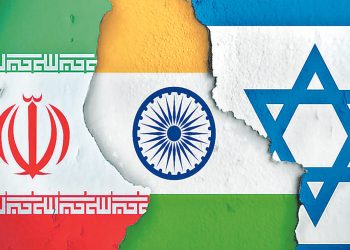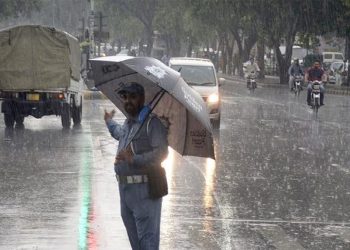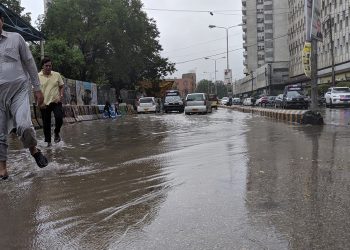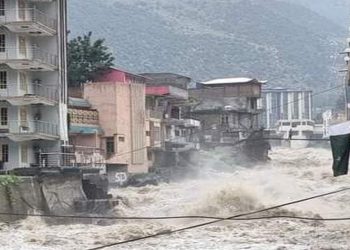A severe cold wave has taken hold across Pakistan, bringing frigid temperatures to various regions of the country. From Karachi to Chitral, the winter chill has firmly set in, with the upper parts of the country experiencing snowfalls and plunging temperatures.
Gilgit-Baltistan, in particular, has been hit hard, with temperatures dipping as low as -10°C in Ghizer, where waterfalls, lakes, and even water lines have frozen. The famous Khalti Lake in Ghizer is also frozen, attracting numerous visitors and children eager to witness the spectacle. The coldest recorded temperature in the region was in Skardu, where temperatures reached -11°C, followed by Gupis at -9°C. Light snowfall in areas like the Kaghan Valley has also drawn tourists to the region, with Shogran being a popular spot for those wishing to witness the winter wonderland.
In Swat, snowfall in the upper areas of Malam Jabba and Kalam has pushed temperatures below freezing, while Balochistan is also experiencing a sharp drop in temperatures. Quetta recorded a low of -5°C, and Kalat’s temperature dropped to -6°C, causing ponds and water accumulated on roads to freeze.
Karachi, the country’s port city, has also felt the effects of the cold wave, with nighttime lows reaching 9°C and morning temperatures recorded at 11°C. This marks the second time this month that Karachi’s temperature has dropped below the 10°C mark. Humidity levels in the city are at 41%, and the wind speed is around 8 km/h, further contributing to the chill in the air. The Pakistan Meteorological Department (PMD) has forecast that the cold weather will persist in most parts of the country, including Khyber Pakhtunkhwa, with a possibility of rain in Punjab starting tomorrow.
While Karachi is experiencing its fair share of cold, other cities in Balochistan and Khyber Pakhtunkhwa are also facing significant drops in temperature. In Balochistan, cities such as Quetta (-4°C), Kalat (-5°C), and Gwadar (8°C) have recorded low temperatures. In Khyber Pakhtunkhwa, the minimum temperature in Peshawar has reached 1°C, with humidity levels at 92%.
Adding to the discomfort, the ongoing cold wave has coincided with a poor air quality index (AQI) in major cities like Karachi and Lahore. Karachi has been ranked as the sixth most polluted city in the world, with an AQI of 199, classified as “unhealthy.” Meanwhile, Lahore continues to struggle with severe smog and was recently ranked as the second most polluted city globally, with an AQI of 303.
As the cold wave persists, residents across Pakistan are bracing for more freezing temperatures and the accompanying air quality issues.


































